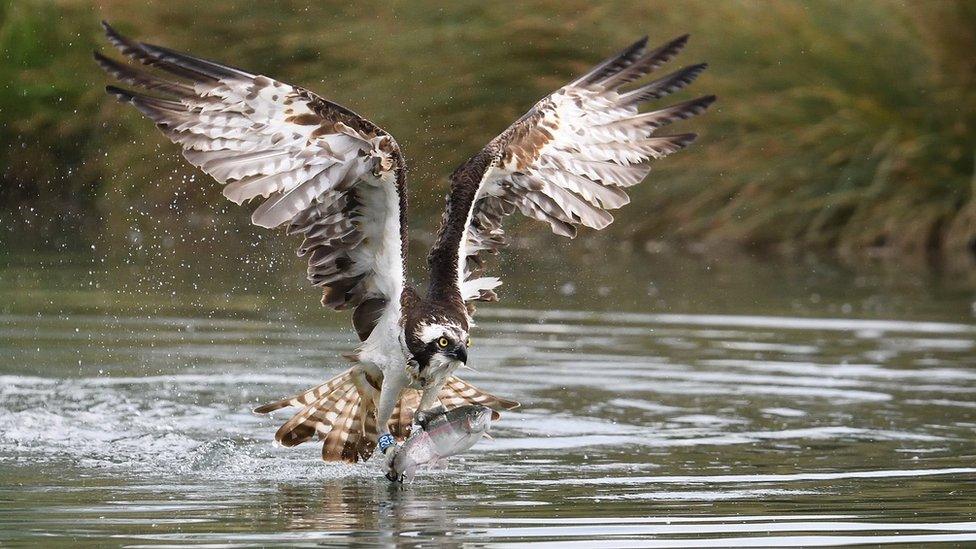Ospreys breed at Belvoir Castle for first time in more than 200 years
- Published
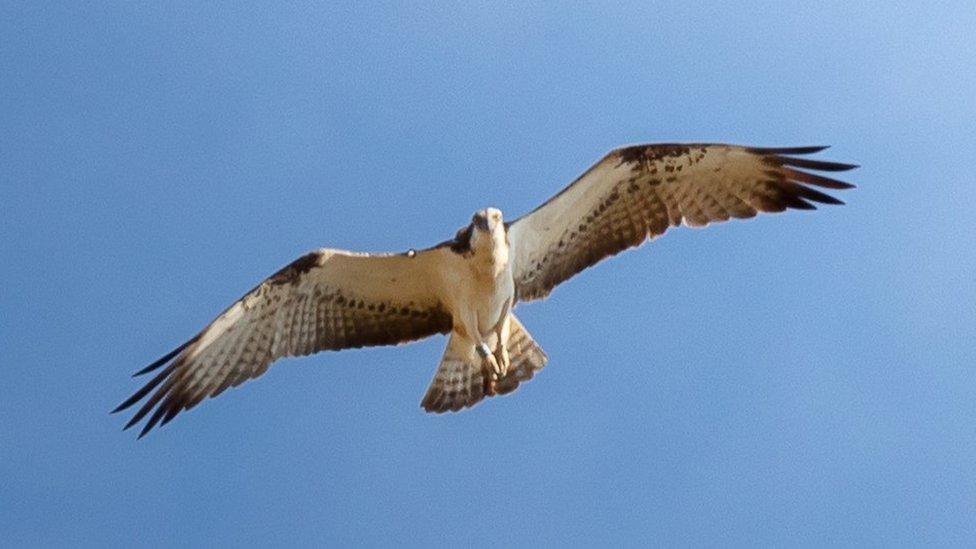
Osprey chicks were hatched at Belvoir Castle for the first time in more than 200 years
Staff at Belvoir Castle are celebrating after the first osprey chicks were born at the site in more than 200 years.
At one point believed extinct in the UK, breeding projects have helped the fish-eating birds of prey recover.
After ospreys were spotted on the historic estate, platforms were put down to encourage nesting.
Beth Dunstan, who managed the eight-year breeding project at Belvoir, said it was "a real triumph for persistence, teamwork and collaboration".
"We are delighted to have attracted ospreys naturally back to Belvoir after all this time," she said.
"They are a beautiful and iconic bird and are right at home in this fantastic landscape."
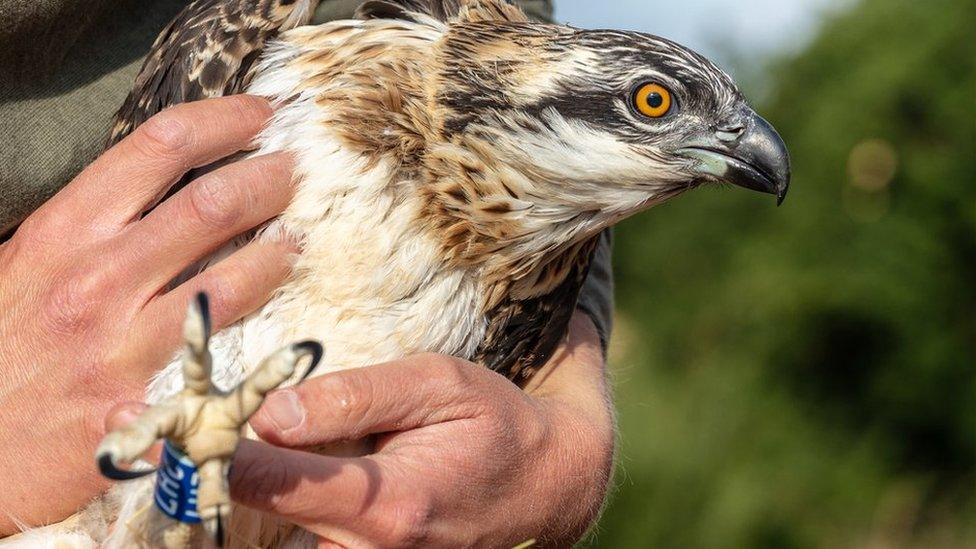
A male osprey born in Rutland and a female believed to be from Scotland are the chicks' parents
The male osprey was identified by his ring as 4K - who hatched at Rutland Water in 2013 - with the tag allowing people to track his migration from Guinea back to Belvoir each spring.
He mated with an un-ringed female believed to have been born in Scotland, and both chicks have successfully fledged over the summer.
The Duchess of Rutland said she was "delighted" to see a bird born from another local conservation project return to Leicestershire to breed.
"It seems amazing to think that the osprey probably last bred at Belvoir back at the time when Capability Brown was surveying the castle grounds for the 4th Duke and Duchess of Rutland in the late 18th Century," she said.
"With Brown's originally unfinished plans recently completed and established at Belvoir, and so much wildlife conservation work undertaken here, it seems a fitting stamp of approval to have the osprey back."

Follow BBC East Midlands on Facebook, external, Twitter, external, or Instagram, external. Send your story ideas to eastmidsnews@bbc.co.uk.
- Published5 August 2021
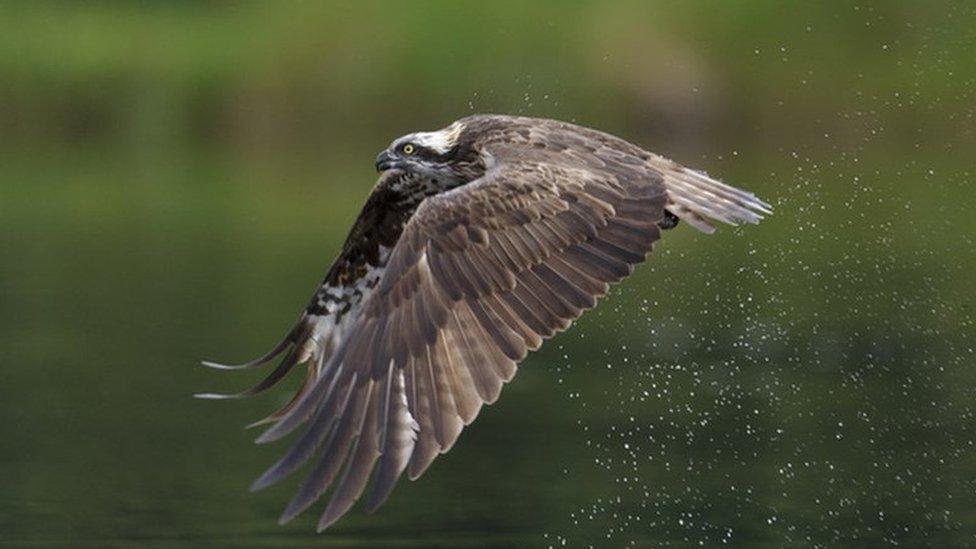
- Published30 May 2020
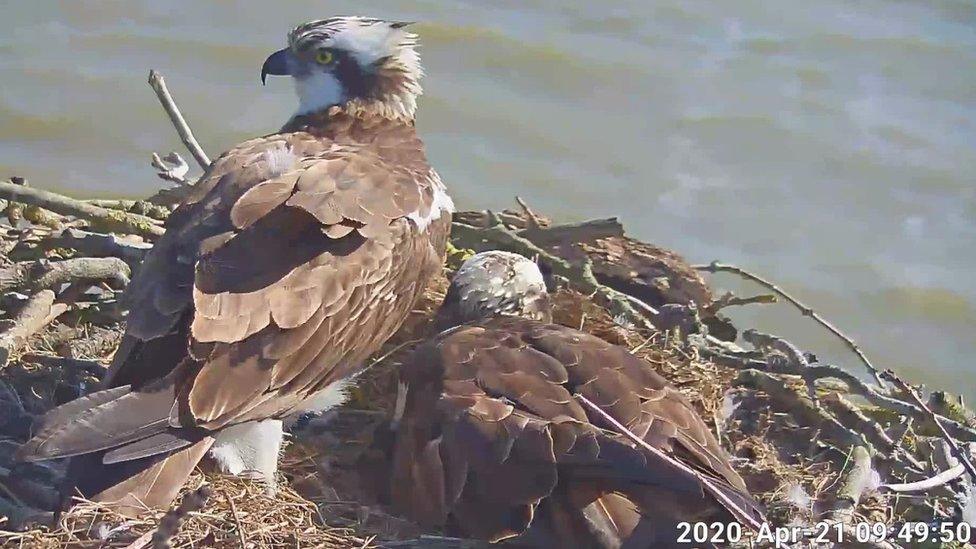
- Published27 July 2019
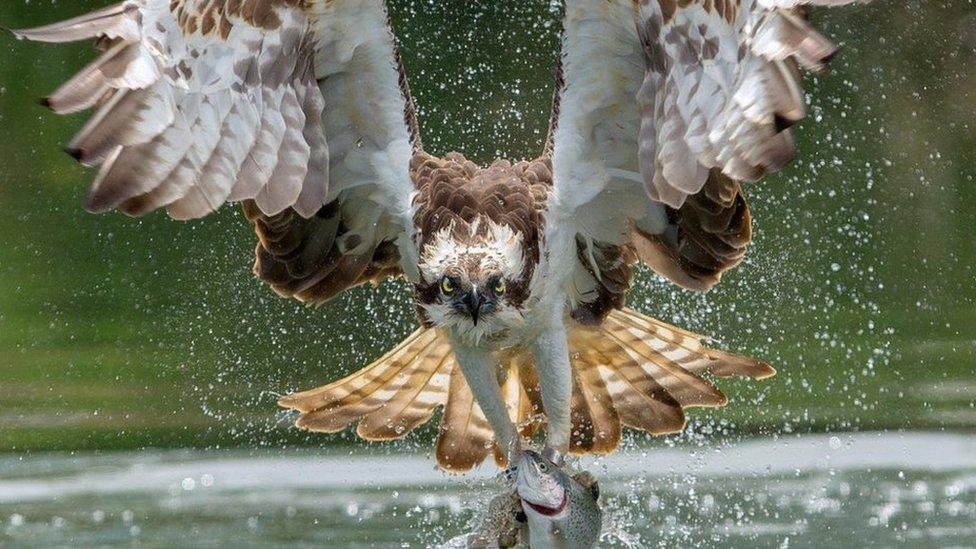
- Published22 July 2019
